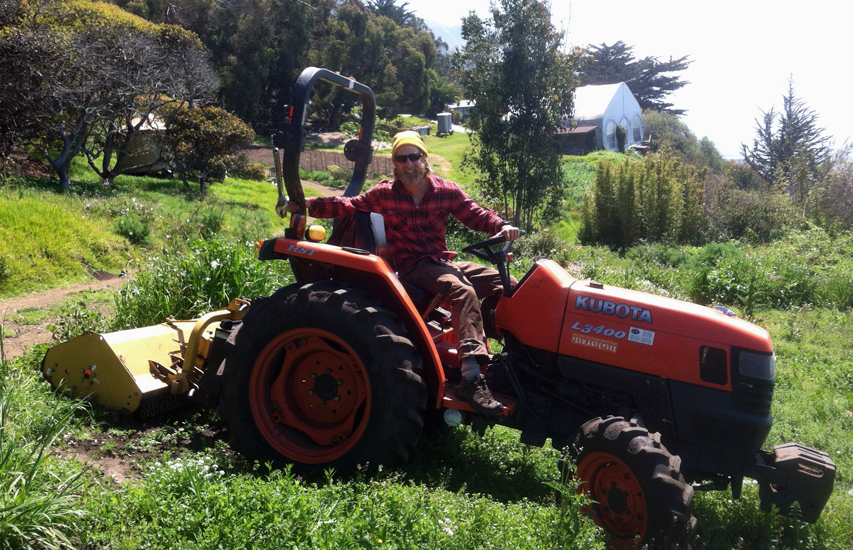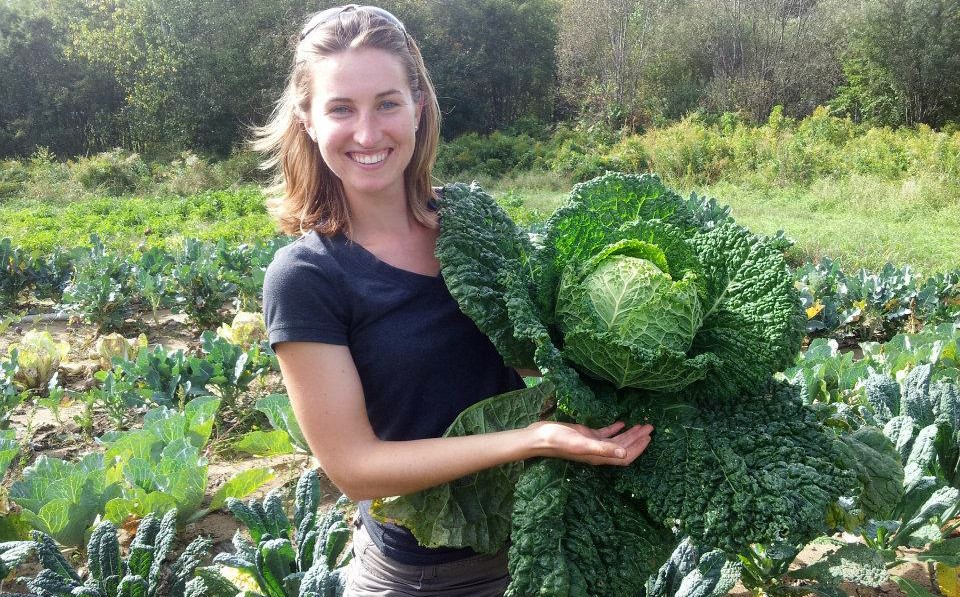Mike Proia walked away from the finance world to pursue his dream of becoming a farmer. The Connecticut native was working full time as a senior bond trader at Cigna Investment Management when he realized he needed to change gears and take his life in an entirely new direction.
“I found myself experiencing a crisis of conscience,” says Proia, who majored in finance and minored in history at the University of Connecticut. “I wanted to become more of a producer than a consumer, and wanted to better align my lifestyle with my values.”
In May 2013, Proia joined the University of Vermont Farmer Training Program. The full-time, six-month program offers participants the unique opportunity to manage their own growing site, take classes from professors and expert farmers, and rotate as workers and learners on successful, diverse farms in the Burlington area.
“I recognized that I was experiencing a strong and growing level of frustration with the state of our current food system, and I refused to remain complacent,” he says. “I saw the UVM Farmer Training Program as an opportunity to deepen my relationship with food and explore my potential to be a contributor in the creation of a more regenerative system of food production.”
Finding a Path to a Career in Farming
For Proia, the decision to become a farmer wasn’t made on a whim. Growing food has been part of his life since he was 10 years old, when Proia spent his summers working on a conventional tomato and pepper farm in his East Hartford neighborhood.
“My relationship with farming has evolved over time, along with my exposure to its depth of complexity and diversity of approach,” he says. “Being a steward of this Earth is of utmost importance to me. I’m drawn to systems that integrate livestock with organic vegetable production, permaculture principles and design, perennial gardening, and utilizing a land management strategy that strives to preserve native plant and wildlife habitat. I recognize that as soon as I stick a shovel into the ground, I am imposing my will onto the land.”
Learning about Farming at UVM and Beyond
At UVM, Farmer Training students spend most of their time at Catamount Farm, located at the university’s Horticulture Research and Education Center in South Burlington. The program provides an intense, supportive experience where participants earn a Certificate in Sustainable Farming, a deeper understanding of agricultural management and small-scale farming, and the entrepreneurial skills to start their own operation.
The weekly rotation at local farms – including Bread and Butter Farm, Intervale Community Farm and Half Pint Farm, plus six other farms – was a highlight of the program for Proia.
“Visiting other Vermont farms was an invaluable part of my Farmer Training Program experience,” Proia says. “I often felt the most inspired and energized after these field trips because they offered me the opportunity to see and be a part of the practical and productive real world application of the curriculum.”
Now living in California, Proia worked as an apprentice at the Esalen Institute in Big Sur after graduating from the UVM Farmer Training Program last fall. He is now joining the Everett Family Farm in Santa Cruz, where he will be part of a small crew helping to manage roughly seven acres of diversified organic vegetable and berry production. (To Proia’s delight, the farm also has a significant orchard operation as well as laying hens.)
A Collaborative Community
The skills and knowledge Proia learned at UVM prepared him well for farming.
“What I found most challenging as a student at UVM was coming to the recognition that as it relates to organic farming, the learning curve is steep and never ending. Our farm director Laura Williams would often remind us that, ‘There is no one right way to farm.’ This theme was pervasive throughout the program and challenged me think more expansively and holistically when it came to seeking answers and putting into practice the information I was learning,” he says.
Even though he is 3,000 miles away, Vermont remains close to Proia’s heart. The UVM Farmer Training Program helped set his life on a new, rewarding path in a state that is leading the way in sustainable food systems.
“The Vermont farming community is progressive, thoughtful, innovative, and ahead of the curve. During my time in Vermont, I observed a tight knit, cohesive community that is embracing healthy competition and whose work reflects passion and care for the land and each other,” he says, adding that he finds the most rewarding aspects of farming to include the people he has met and the tactile nature of the work. “I feel strongly that we are at the beginning stages of a paradigm shift as it relates to our food system, and I’m excited to be part of it during the early stages of change.”
For more information about the UVM Farmer Training Program, visit learn.uvm.edu.




